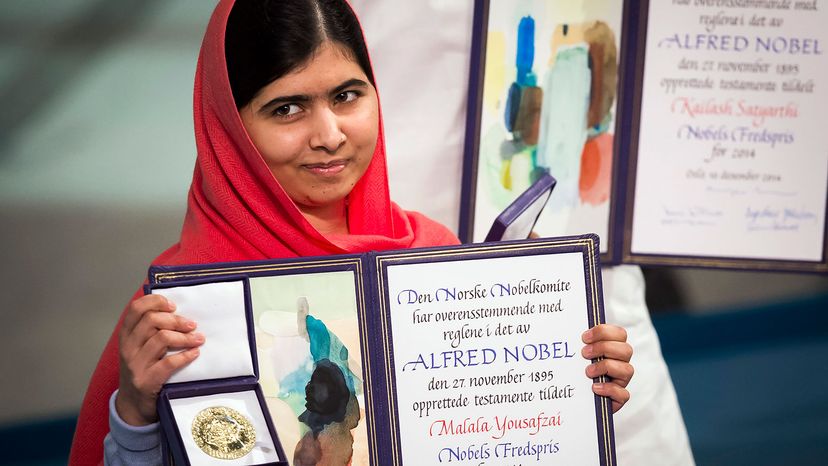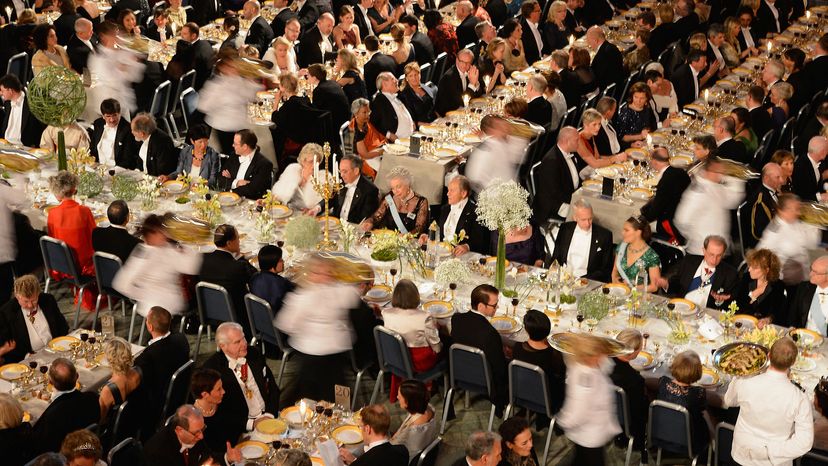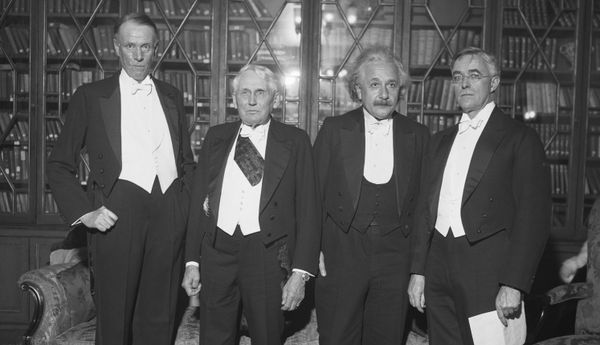First, the bad news. You cannot nominate yourself for a Nobel Prize.
Nominations for the four most technical Nobel categories — physics, chemistry, medicine and economic sciences — are exclusively by invitation only. Each prize has its own standing Nobel Committee, which sends out nomination requests to roughly 3,000 people, all leading academics in the field and former Nobel recipients.
From those hundreds of nominations, each Nobel Committee creates a shortlist of finalists, after consulting with experts, which is then sent to the Royal Swedish Academy of Sciences. The Academy then votes by majority for the winners of the Nobel Prizes in physics, chemistry, physiology or medicine, and the economic sciences. The decisions are final.
The other two prizes, literature and peace, have slightly different nomination processes. The literature committee, for example, sends out its own invitations for nominees, but other "qualified persons" are also welcome to submit names for consideration. Qualified persons include professors of literature or linguistics at colleges and universities, and presidents of national literary societies. The winner of the literature prize is selected by the 18 members of the Swedish Academy, who are all prominent Swedish writers, literary scholars and historians.
No nomination invitations are sent out for the peace prize. But that doesn't mean anyone can nominate anybody. You have to be a "qualified nominator" to submit names. People who fit that bill include members of The Hague, government ministers or former Nobel Peace Prize winners, but also university professors in fields like the social sciences, law, philosophy and religion, and directors of peace research institutes.
The winner of the peace prize is chosen by Norwegians, not Swedes. In his will, Nobel specified that the peace prize would be selected by a five-person committee chosen by the Norwegian Parliament. That's why the peace prize alone is awarded in a ceremony in Oslo, while the rest are conferred at ceremonies in Stockholm.
The deliberation process for choosing the winners is private (you could say "secret) and the full lists of nominees and their nominators aren't made public until 50 years later.
Famous Nobel laureates in the sciences include Albert Einstein, Marie Curie (who won it twice, once for physics and once chemistry), Max Planck, and James Watson and Francis Crick. Literature winners include Ernest Hemingway and Toni Morrison. Nelson Mandela, Martin Luther King, Jr., Mother Teresa and Malala Yousafzai have all won peace prizes. The prize winners are announced daily during the first week of October, one each day, capping off with the winner of the peace prize on Friday, and the economics prize the following Monday.



